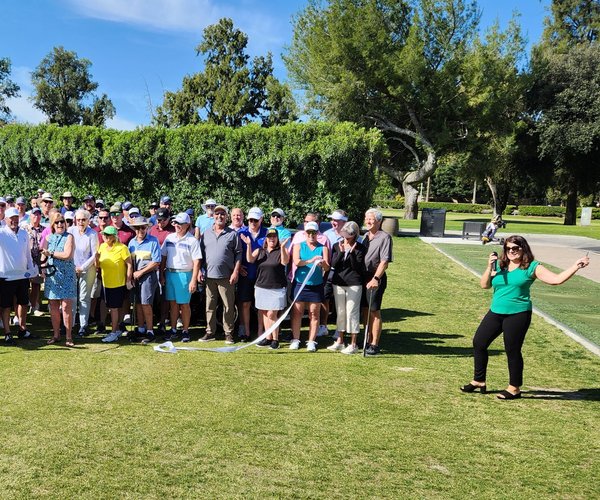All I wanted to do was give her a hug.
But I couldn’t do it.
On my last night in my village in Azerbaijan, my co-teacher walked me to the gate of her parents’ home, where she and her two children were spending the night. Though I’d see her briefly the following morning on my way out of the village and eventually out of the country, this was my last true in-person interaction with her. I told her that I loved her like a sister, and that she was my best friend throughout my two-plus years in Peace Corps.
“I felt it, too,” she told me, referring to our friendship.
I wanted to give her a hug, simply because that’s the American way. But in the Azerbaijani culture, that type of interaction between a man and woman is generally not accepted. I realized that I couldn’t have it all.
It’s been nearly two months since I successfully completed my Peace Corps service in Azerbaijan, and there have been many days where I have to convince myself that my time there did happen. Sometimes I think I made it all up in my mind, and that I didn’t actually teach English at a small village school in a post-Soviet country that is rich with oil and natural gas.
I didn’t actually have a host mom who spoke no English, and that nearly everything she cooked — including the chickens, turkeys and vegetables — came from her yard. I didn’t actually speak a completely foreign language in Azerbaijani, however broken and awful it may have been at times. I didn’t actually live among cows, horses, buffaloes, chickens, ducks and turkeys, with many of them roaming around freely on the dirt roads of my village near the Georgian and Russian borders. I didn’t actually spend two years of my early 30s in a country that some of my family and friends thought I made up, drinking tea with the elders and playing hours of Simon Says and Frisbee with students and neighbors.
But those moments did happen. I have plenty of Facebook photos to prove it.
Four years prior to my departure to Azerbaijan, I remember romanticizing about the Peace Corps and the possibility of making scrapbook memories. When people asked me why I wanted to leave my job in America to volunteer two years of my life in a developing country, I never knew how to answer that question. It was just something that made sense to me. It gave me a reason to travel across the globe and live within a culture outside of my own. It fulfilled my desire for adventure. It offered an experience that’d be incomparable to anything else.
I lived in a Muslim country with some of the nicest and most peaceful and religious people I’ve ever met. I lived in a village with unreliable running water, electricity, satellite TV and Internet, while the people there still lived off their land like they’d been doing for decades. I lived in a society where women were expected to do the housework and men were the providers, though, for the latter, that wasn’t always the case. I lived among people who had limited interactions with diversity, so whenever I was outside of my village, I often received special unwanted attention because of my Asian facial features.
Through it all, I managed to have a successful time as a volunteer, thanks mostly to my primary co-teacher Gulnara. Before I arrived in my village, I received nearly three months of language, cultural and technical training in a big city near Baku, the capital of Azerbaijan. Nearly 50 other volunteers-in-training and I were told that when it comes to relationships between males and females, even in professional settings, it was tricky. In some cases, women would refuse to work with men, citing religious reasons or jealous husbands. So when I met my co-teacher for the first time near the end of my training months, I figured it wouldn’t work out between us.
I got assigned to a considerably liberal community made up of the Avar people, who are originally from the nearby Russian republic of Dagestan. I didn’t have any problems when I was socializing with female students, teachers and community members. Thanks to my co-teacher and her impressive grasp of multiple languages, she was able to provide a better understanding of my work, my purpose.
I organized summer camps, a writing competition, English conversation clubs, an Ultimate Frisbee tournament and other activities, while fulfilling the requirement of teaching at least 15 hours a week with a local teacher. My two biggest accomplishments were: 1) building an English resource room at my village school after receiving a USAID funding; and 2) helping my co-teacher Gulnara earn acceptance into the Teaching Excellence and Achievement Program, which annually sends teachers across the globe to a U.S. university for six weeks to improve their professionalism. Gulnara is scheduled to come to America in September, something she never expected to happen in her lifetime.
Though some days weren’t the best, I didn’t want to end my time there. That’s why it wasn’t easy to walk away from Gulnara when I was face-to-face with her for the last time. I often thought about what I’d say to her in this situation. She was my sister, my best friend, and I managed to tell her just that through my shaky voice. I wanted to give her a hug, but I couldn’t, so she extended her hand out for a handshake. That was enough for me.
Editor’s note: Chhun Sun is a former Peace Corps volunteer who served as an English teacher at a small village school in Azerbaijan. A former sports reporter for the Journal, Sun completed his 27-month service in November.





